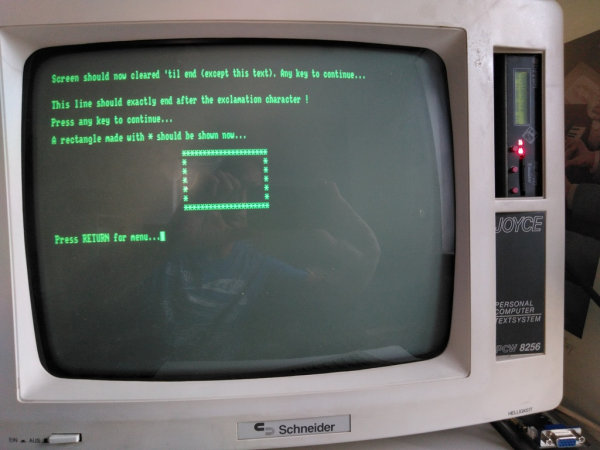|
CP/M development was started from Digital Research in 1975.
There exists several versions for different processors, started for the Intel 8080 and the compatible processors like Zilog Z80 and the Intel 8085, later for the Intel 8086, Zilog Z8000 and also for the Motorola 68000.
My interest is focused on the Intel 8080 versions:
CP/M 1.4, CP/M 2.0, the well known CP/M 2.2 and the better, but less common CP/M 3.0. There also some variants like ZSDOS, QP/M, Personal CP/M, DOS+ or TurboDOS - these are useful, but they are not "mainstream".
If you're curious about the content of that Walnut Creek CD, download in advance this file listing/inventory (~400KB).
The "Walnut Creek CD" files can be found >here<
There's also a great software repository at >Gaby's "unofficial CP/M" site<.
Also, there is a very good place to find programming languages at >retroarchive's file collection<.
Very important is transferring files from real CP/M computers to newer systems (aka PC's or Mac's ;-)). One of the most famous transfer programs is Kermit from the Columbia University. To get it running with CP/M, look >here<.
To transfer the CP/M software from a PC to a real CP/M system, look >here<
To test what terminal type must be choosen (e.g. for WordStar), try my Terminal Test program. You can edit the control sequences in a text configuration file which is predefined with 6 terminal types already (VT100, VT52,TVI-910 (or TVI-950), ADM-3A (or ADM-31), WYSE-50 (or WYSE-60) and HAZELTINE ESPRIT. Just download it from >here< (locally mirrored). If successfully executed, it looks like this:

(image here thx to "almasys", a user from forum.classic-computing.de)
|

